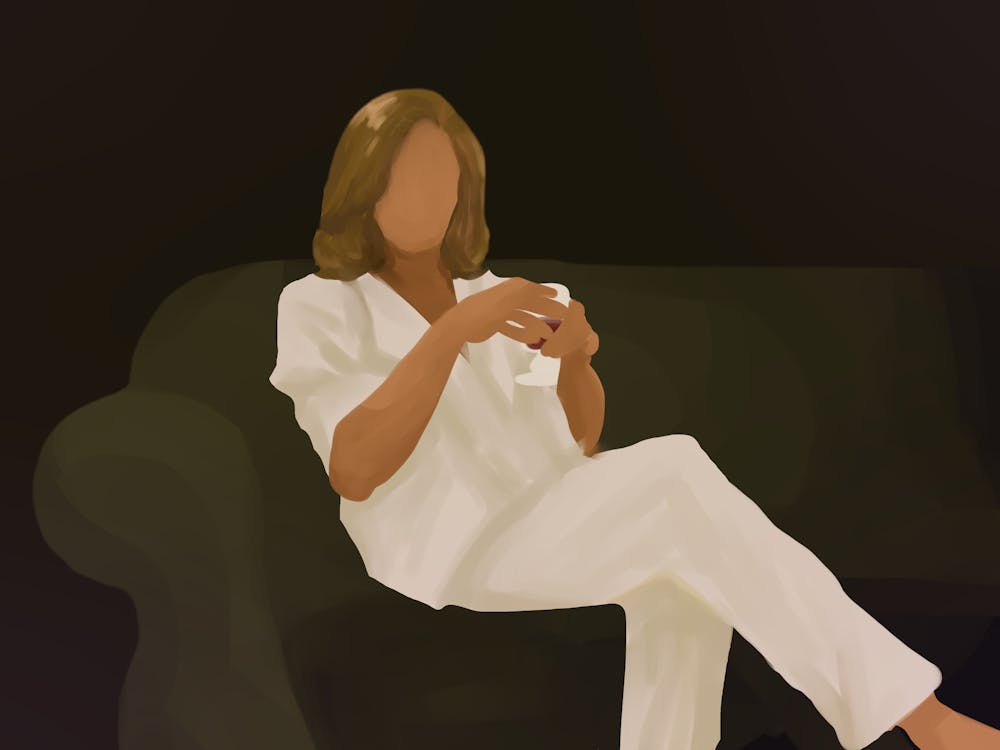Riding high on the coattails of the critically acclaimed, vibrant sports-drama “Challengers,” director Luca Guadagnino has shifted gears for his newest release, “After the Hunt.” Moody, meandering and mildly infuriating, the film highlights the common stereotypes we place upon different generations, pitting teacher against student in a he-said-she-said of blame and deception.
“After the Hunt” is shouldered by a star-studded cast, with Julia Roberts, Andrew Garfield and Ayo Edebiri as the leading trio of an incredibly strong ensemble. In their early press tour, these three went viral on social media for gracefully challenging an insensitive interview question regarding what Hollywood “lost during the politically correct era.” Somewhat fittingly, the idea of “political correctness” is inescapable throughout their movie, with a constant debate over whether younger generations have gotten too sensitive.
The film follows Yale philosophy professor Alma, played by Roberts, as she navigates a sexual assault case brought against her close co-worker, Hank, by one of her students, Maggie, played by Garfield and Edebiri respectively. While Hank insists that the claim is false — a fabrication made to cover up cheating on her dissertation — Alma is stuck in the middle, caught between who to believe and how to keep the situation from spiraling out of control.
As the movie progresses, lines become blurred as to who Alma can trust, or whether she herself is acting out of good faith. Her tenure-track position and marriage in careful balance, she soon runs the risk of losing it all if she does not act in accordance with other’s expectations of her. With enraged student protesters and an administration trying to save face on one side, and her more old-fashioned colleagues and husband on the other, there is seemingly no middle ground or correct reaction to have.
Discussing a sensitive topic matter, “After the Hunt” was all but destined to have a mixed bag of reviews. The film has received much backlash for being too slow, irritating or self-congratulatory, while some critics praise the discomforted feeling and conversation it elicits. Indeed, no character is particularly likeable, all having real pitfalls and moments which make the audience turn against them. While this may have been Guadagnino’s intention — to make viewers not root for a single party — it leaves some with a poor taste in their mouths.
Still, the acting does shine behind these complex portrayals, Roberts in particular right within her spunky and against-the-mold element. Alma is exactly the kind of role that she shines in, one where she can have loud outbursts and emotional defeats and be wildly imperfect. The main factor holding her back from this performance being a regular “Erin Brockovich” is some of the strange dialogue choices that Guadagnino and screenwriter Nora Garrett make, like yelling “They, go away!” to a non-binary person.
Roberts is not the only one stuck with this strange mismatch of acting and lines, with Garfield too shining bright in a role entirely opposite to his “nice guy” public persona. At times, though, the dialogue gets in the way of his brutish and pompous character, particularly in the third act where the script becomes too “tell-y” and hand-holding to the audience. Roberts and Garfield do not need multiple conversations detailing their characters’ care for each other when they are capable of conveying these emotions subliminally.
While the cinematography is typical Guadagnino, with gorgeous long shots of a snow-covered Yale and the sunset over Long Wharf, the language feels very foreign. Often, it gets lost in the weeds of philosophical talk which makes it lose some punch. These scenes, while not making up the entire movie, detract from conversations which are otherwise highlighting important points regarding the theme of young people being overly sensitive and self-censoring. Every instance of a student constantly using euphemisms or victimizing themselves is bogged down by some convoluted esoteric discussion.
Whether or not the viewer agrees with this stance on the over-softening of dialogue, it is the most thought-provoking piece of the film and was a large driving factor in marketing and press. While “After the Hunt” centers on a sexual assault case, the validity of the accusation does not hold much weight. Instead, Guadagnino chooses to focus on how perception may be more important than the truth — it is a story about storytelling and its power.
This discussion of cancel culture highlights all the main arguments people make surrounding issues like sexual assault allegations — blaming the victim, power dynamics or the idea that “it’s not all men” — without giving any specific solution. While unsatisfying, the importance of this portrayal is in understanding dissenting perspectives and leaving the movie theater challenged in what an audience member may have previously believed. “After the Hunt” is not intended to be an individual experience.
“You have to talk about [the film] with someone else … and make space for nuance, and listening, and discussion, disagreement even,” leading star Edebiri told CBS.
These are the pieces that are most interesting — the clash in beliefs that Alma, Maggie and many of the other characters display. There are clear problems to be broken down in everyone's thinking, more complex than the old versus young rhetoric shown in snippets of the film’s trailer. Each new scene has a new victor, or simply no predominant philosophical winner at all. It is a constant war for power over the narrative.
That being said, not all of this is done to perfection. There is convoluted dialogue and out-of-place moments and characters that become increasingly harder to relate to as they reveal themselves to be worse and worse people. Overall, however, the film does what Guadagnino set out to achieve — to rile up audiences and leave them questioning their preconceptions.







